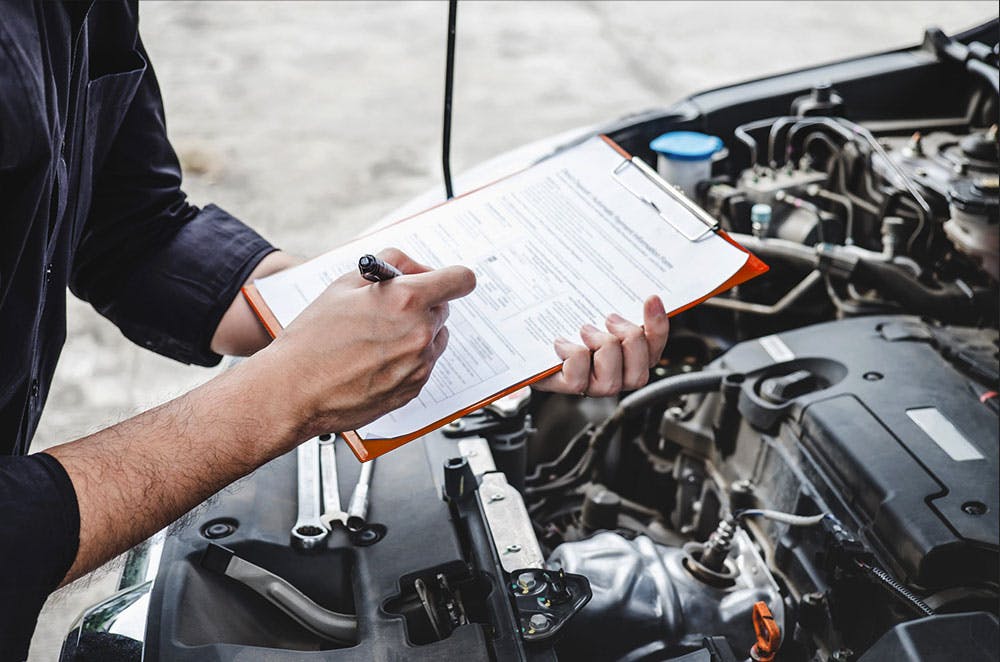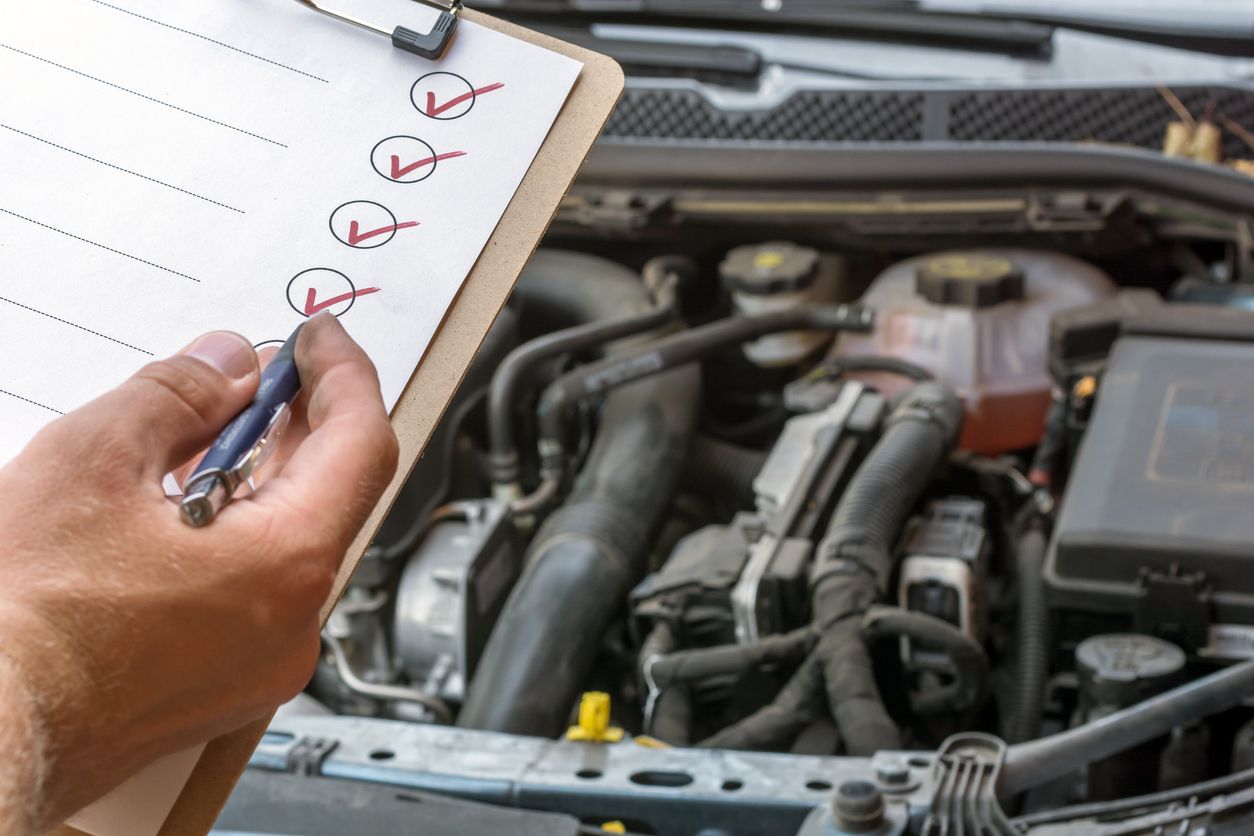All Categories
Featured
When your auto gets too hot, it can seem like a significant emergency, however staying calm and following the best steps can stop major engine damage and aid obtain you back on the road securely. In this message, we'll discover what to do if your automobile overheats and offer preventative tips to reduce the threat of overheating in the future.
If Your Cars and truck Gets too hot,What to Do. Pull Over to a Safe Area The initial and essential action if your vehicle starts to get too hot is to draw over to a safe area asap. Switch on your threat lights and direct your lorry to the shoulder or into a car parking lot. Keeping your auto running while it's overheated can cause serious damages to the engine, so it's essential to shut the engine off as soon as possible.
Let the Engine Cool Once you've securely stopped, allow the engine to cool off. You ought to never ever attempt to open the radiator cap while the engine is still warm, as the release of steam or hot coolant can create burns. Wait at least 15-20 minutes to permit the engine temperature to go down to a much safer level before continuing.
![]()
Examine the Coolant Degree After the engine has cooled, check the coolant degrees by inspecting the tank or radiator. If it's reduced, leading it off with a combination of coolant and water (as specified by your car's maker) Always make use of care when opening the coolant reservoir, as stress may have constructed up.
Search For Noticeable Leaks While you wait for the engine to cool down, visually examine the radiator, pipes, and coolant storage tank for any noticeable leakages or fractures. A leaking radiator or hose pipe is a common reason for overheating. If you discover a substantial leakage, it's better to call a tow solution than threat driving additionally and causing extra damages.
Reactivate the Engine After allowing the engine to cool down and making sure the coolant is completed, start the engine and keep track of the temperature level scale. If the temperature level continues to rise rapidly, it's best to shut the engine off and call for roadside aid or a tow to the nearest technician.
![]()
How to stop Getting Too Hot in the Future. On A Regular Basis Examine Coolant Degrees One of the most convenient means to stop getting too hot is by preserving the right degree of coolant. In time, coolant can vaporize, so regularly examine the coolant levels in the tank. Low coolant levels can create the engine to get too hot rapidly, so top it off as required.
Evaluate the Radiator The radiator plays a crucial role in keeping the engine cool. Occasionally inspect the radiator for any blockages, dirt, or debris that could obstruct airflow. If you notice any type of signs of damages, such as rust or leaks, have it repaired or replaced immediately.
Replace the Thermostat and Water Pump A malfunctioning thermostat or water pump is a typical source of getting too hot. The thermostat manages the flow of coolant, while the water pump distributes it with the engine. If either component is defective, it can protect against proper air conditioning. When necessary., have your mechanic examine these components frequently and change them.
Flush the Cooling System With time, coolant can break down and come to be inefficient, causing an accumulation of debris in the system. Flushing the air conditioning system every 30,000 miles, or as suggested in your vehicle's manual, aids to eliminate any type of sludge or buildup and makes sure the cooling system is functioning appropriately.
Monitor the Problem of the Hose pipes The hose pipes in your automobile's air conditioning system can break or fracture gradually. Evaluate the hoses for any kind of signs of wear, such as bulging, cracks, or leaks, and change them if needed. Avoiding coolant leakages can go a long means in staying clear of getting too hot.
![]()
Drive Responsibly Hostile driving, such as speeding up swiftly or driving at broadband, places extra pressure on your engine and its cooling system. Attempt to drive at moderate rates, especially on hot days or when driving on steep slopes, to lower the opportunities of overheating.
Avoid Overloading Your Car Lugging too much weight in your automobile puts anxiety on the engine and cooling system. Always be mindful of your automobile's weight limitation, particularly if you're hauling hefty loads, lugging a trailer, or driving cross countries in hot climate.
Verdict. An overheating automobile can be a frightening experience, however understanding how to respond and prevent it can save you time, cash, and possible engine damage. Constantly check your coolant degrees, evaluate vital parts like the radiator, thermostat, and hose pipes, and follow a regular upkeep timetable. By remaining on top of your lorry's air conditioning system, you can lower the danger of overheating and delight in a smoother, safer driving experience.
If Your Cars and truck Gets too hot,What to Do. Pull Over to a Safe Area The initial and essential action if your vehicle starts to get too hot is to draw over to a safe area asap. Switch on your threat lights and direct your lorry to the shoulder or into a car parking lot. Keeping your auto running while it's overheated can cause serious damages to the engine, so it's essential to shut the engine off as soon as possible.
Let the Engine Cool Once you've securely stopped, allow the engine to cool off. You ought to never ever attempt to open the radiator cap while the engine is still warm, as the release of steam or hot coolant can create burns. Wait at least 15-20 minutes to permit the engine temperature to go down to a much safer level before continuing.

Examine the Coolant Degree After the engine has cooled, check the coolant degrees by inspecting the tank or radiator. If it's reduced, leading it off with a combination of coolant and water (as specified by your car's maker) Always make use of care when opening the coolant reservoir, as stress may have constructed up.
Search For Noticeable Leaks While you wait for the engine to cool down, visually examine the radiator, pipes, and coolant storage tank for any noticeable leakages or fractures. A leaking radiator or hose pipe is a common reason for overheating. If you discover a substantial leakage, it's better to call a tow solution than threat driving additionally and causing extra damages.
Reactivate the Engine After allowing the engine to cool down and making sure the coolant is completed, start the engine and keep track of the temperature level scale. If the temperature level continues to rise rapidly, it's best to shut the engine off and call for roadside aid or a tow to the nearest technician.

How to stop Getting Too Hot in the Future. On A Regular Basis Examine Coolant Degrees One of the most convenient means to stop getting too hot is by preserving the right degree of coolant. In time, coolant can vaporize, so regularly examine the coolant levels in the tank. Low coolant levels can create the engine to get too hot rapidly, so top it off as required.
Evaluate the Radiator The radiator plays a crucial role in keeping the engine cool. Occasionally inspect the radiator for any blockages, dirt, or debris that could obstruct airflow. If you notice any type of signs of damages, such as rust or leaks, have it repaired or replaced immediately.
Replace the Thermostat and Water Pump A malfunctioning thermostat or water pump is a typical source of getting too hot. The thermostat manages the flow of coolant, while the water pump distributes it with the engine. If either component is defective, it can protect against proper air conditioning. When necessary., have your mechanic examine these components frequently and change them.
Flush the Cooling System With time, coolant can break down and come to be inefficient, causing an accumulation of debris in the system. Flushing the air conditioning system every 30,000 miles, or as suggested in your vehicle's manual, aids to eliminate any type of sludge or buildup and makes sure the cooling system is functioning appropriately.
Monitor the Problem of the Hose pipes The hose pipes in your automobile's air conditioning system can break or fracture gradually. Evaluate the hoses for any kind of signs of wear, such as bulging, cracks, or leaks, and change them if needed. Avoiding coolant leakages can go a long means in staying clear of getting too hot.

Drive Responsibly Hostile driving, such as speeding up swiftly or driving at broadband, places extra pressure on your engine and its cooling system. Attempt to drive at moderate rates, especially on hot days or when driving on steep slopes, to lower the opportunities of overheating.
Avoid Overloading Your Car Lugging too much weight in your automobile puts anxiety on the engine and cooling system. Always be mindful of your automobile's weight limitation, particularly if you're hauling hefty loads, lugging a trailer, or driving cross countries in hot climate.
Verdict. An overheating automobile can be a frightening experience, however understanding how to respond and prevent it can save you time, cash, and possible engine damage. Constantly check your coolant degrees, evaluate vital parts like the radiator, thermostat, and hose pipes, and follow a regular upkeep timetable. By remaining on top of your lorry's air conditioning system, you can lower the danger of overheating and delight in a smoother, safer driving experience.
Latest Posts
How Consistent Vehicle Maintenance at Montclare Auto Repair Reduces Costs
Published May 31, 25
1 min read
Uncover Montclare Auto Repair’s Most Popular Services and Why Drivers Trust Them
Published May 26, 25
1 min read
Discover Why Chicago Drivers Prefer Montclare Auto Repair for Trusted Service and Great Savings
Published May 25, 25
1 min read
More
Latest Posts
How Consistent Vehicle Maintenance at Montclare Auto Repair Reduces Costs
Published May 31, 25
1 min read
Uncover Montclare Auto Repair’s Most Popular Services and Why Drivers Trust Them
Published May 26, 25
1 min read
Discover Why Chicago Drivers Prefer Montclare Auto Repair for Trusted Service and Great Savings
Published May 25, 25
1 min read